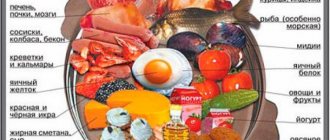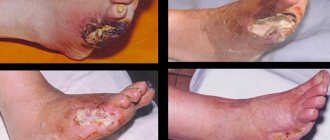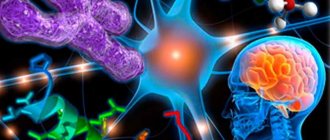Content:
- The influence of alcohol on indicators
- For hypertension
- At low pressure
- Related factors
- Possible consequences
- Compatibility of alcohol and antihypertensive drugs
- How to stop a rise
The most frequently asked questions to narcologists are whether alcohol increases or decreases blood pressure, and how alcohol affects existing hypertension or hypotension. The widespread belief that under the influence of ethanol blood vessels dilate, helping to normalize blood pressure, is incorrect. Conducted research and collection of statistical data indicate that in most cases of alcohol dependence, hypertension is diagnosed. A trend is also observed in people who regularly drink alcoholic beverages.
How does cognac work?
It is impossible to resolve in one word the endless debate regarding whether cognac is healthy. A discussion about whether a strong drink dilates or constricts blood vessels will lead to nothing, because the effect of cognac is twofold.
In the first minutes after administration, it is able to dilate blood vessels. Then they narrow. Consequently, surges in blood pressure are inevitable: from a decrease to an increase, and the “swing” can swing with a large amplitude.
After the first 30-50 g are taken, the following happens in the body:
- blood vessels dilate;
- the walls of the arteries lose their tone for a short time;
- blood circulates freely;
- the pressure drops.
If we stop here, the benefits of cognac seem obvious: vasodilation for hypertensive patients is necessary to cope with excess blood pressure.
We recommend reading: How does cognac affect blood pressure, does it increase or decrease it?
However, the actions of the “taken to the chest”, alas, are usually predictable: after feeling relief, the person decides to drink more cognac. And the blood vessels are put under increased stress: the next dose leads to the fact that the heart requires more effort to pump blood, the vessels narrow, and the volume of blood circulating through them presses with considerable force.
There is an outflow of blood from the periphery (from the arms and legs) to the brain, which allows the signal to further “spur” the heart to work. Result: pressure is rising. Actually, the beneficial effect of cognac ends at this stage. The opposite effect is observed : even a hypertensive crisis is possible.
The influence of alcohol on indicators
To understand the issue, consider the effect of ethanol on blood vessels. In a healthy person, small doses lead to a slight decrease in blood pressure. The effect is due to the toxic effect on the neurons of the vasomotor center of the medulla oblongata, which is responsible for the tone of arteries, veins and capillaries. Temporary relaxation of the vascular walls occurs, thereby increasing the internal lumen. The action is felt as a general relaxation, a spreading of warmth throughout the body.
When drinking a large volume, the opposite reaction develops, causing vasospasm. The vascular lumen sharply narrows, blood flow slows down, accumulating in certain zones, and a sharp increase in indicators is observed. An addict or drinker with a history of hypertension may develop a hypertensive crisis. With systematic abuse, unexpected changes are likely.
Is it good for blood vessels?
A daily intake of 30-70 g of the drink has a dilating effect on peripheral vessels. This reduces the resistance of their walls and leads to a slight decrease in blood pressure. The hypotensive effect of alcohol lasts a short period of time. The next dose of alcohol increases blood pressure.
Tannins are of great importance for the walls of blood vessels. They are part of cognac alcohol and have anti-inflammatory properties.
Thanks to them, the body's absorption of vitamin C increases. It is a strong antioxidant that strengthens the walls of blood vessels. Thanks to this vitamin, the permeability of the walls of blood vessels is reduced.
The tannins and lingin contained in the drink cleanse the blood of cholesterol. This significantly reduces the risk of developing atherosclerosis and improves the elasticity of blood vessels.
According to some studies, cognac alcohol has the ability to reduce blood glucose concentrations. This is of great importance for the blood vessels of patients with diabetes. The drink reduces their risk of diabetic macro- and microangiopathies.
See also:
- Is it true that red wine is good for the heart: a review of research.
- 4 scientific facts about the effects of coffee on the cardiovascular system.
For hypertension
In case of illness, alcohol causes jumps up to critical levels. The mechanism is as follows: relaxation is followed by a sharp spasm and the release of stress hormones into the blood. The heart rate accelerates, the organ pumps blood faster, thereby raising blood pressure.
Frequent consumption, especially in large quantities, is strictly contraindicated for hypertensive patients. Changes in blood flow caused by periodic relaxation and spasms worsen the condition of the body. Lack of oxygen and nutrients has a detrimental effect on health.
This is especially noticeable in people suffering from alcoholism, when there is a lack of vitamins and minerals. Not only does the risk of cardiovascular pathologies increase, but also premature wear and tear of the entire system.
What is better for blood vessels – cognac or vodka?
Vodka constricts blood vessels and increases blood pressure. The effect comes a little faster - alcohol enters the bloodstream almost 15 minutes after drinking the drink.
The duration of the effect depends on the amount drunk, as well as the individual physiological characteristics of the person. For some – up to 3 hours, for others – up to 8 – 10.
Conclusion. Which dilates blood vessels better and why? Cognac, since with small dosages the pressure decreases (when drinking vodka, the pressure can only increase), the load on the entire cardiovascular system is less.
We reviewed another 15 vasodilating drinks in a separate article.
Also pay attention to 10 products that widen the lumen of the arteries.
Vodka strength can be up to 60%. As a rule, the higher it is, the more fusel oils it contains (but not always - it depends on the production technology). To minimize harm, preference should be given to low-strength vodka (from 30 to 40%, which is found everywhere).
At low pressure
With hypotension, the walls of blood vessels are dilated and are in a state of decreased tone. Under the influence of small doses of ethyl alcohol, the muscles of the vascular walls relax even more, thereby reducing the pressure of blood flow. The blood supply to the extremities and brain deteriorates, and the ensuing hypoxia causes drowsiness. It is for this reason that a drunk person feels numbness in his legs and dizziness.
Regular drinking leads to increased pressure and even greater stretching of the walls. The accumulation of cholesterol and changes in blood composition provoke the formation of blood clots and atherosclerotic plaques. 5-6 hours after a heavy libation, dehydration of the body occurs, hemoconcentration of the blood increases, that is, its thickening. In this regard, the formation of blood clots and the complete deterioration of blood supply, especially small capillaries, increases.
Related factors
In addition to the dosage, the patient’s age, existing diseases and even the type of drink are affected. Under the age of 40, changes are practically not felt even after prolonged use. Over 40 and up to 55 years, 67% of people experience symptoms of blood pressure surges. In old age, almost every person who drinks has problems with the functioning of the cardiovascular system.
Existing pathologies of the heart and blood vessels, as well as the kidneys and endocrine system, greatly increase the risk of hypertension with systematic use and the presence of chronic alcoholism . Also, aggravating factors are considered to be a tendency to blood clots, elevated cholesterol levels or diabetes mellitus, intracranial hypertension.
There is an opinion that cognac relieves spasms and normalizes blood flow, but the temporary effect has already been written above. Taking wine in therapeutic doses is also not justified. Even the consumption of a small amount does not go unnoticed and causes damage to health.
It is better not to drink alcohol if you are obese and prone to swelling. This will only make the condition worse.
How does it affect blood pressure?
Understanding the processes of the drink’s effect on the human body allows it to be used to increase and decrease blood pressure.
Tannins and tannins contained in alcohol take an active part in the process of regulating pressure.
For people suffering from hypertension, regulating blood pressure with cognac is deadly.
The size of permissible doses depends on the person’s health status and weight. Uncontrolled drinking of alcohol leads to surges in blood pressure . This is explained by the fact that when cognac enters a person’s bloodstream, it provokes an increase in heart rate. This increases the load on the vessels and increases pressure.
See also:
- The beneficial effects of green tea on the heart and blood vessels.
- 7 natural juices the heart needs.
- How much water should you drink for heart health?
Possible consequences
Among the heart pathologies caused by systematic abuse, the most common are:
- chronic heart failure;
- alcoholic cardiomyopathy;
- organic and functional myocardial lesions, ischemic heart disease;
- arrhythmias.
The danger is posed by changes caused by prolonged binge drinking or a state of abstinence, during which severe complications develop.
- Ischemic strokes, accompanied by impaired cerebral circulation, leading to partial paralysis and disability.
- Arrhythmias, manifested either by a rapid heartbeat or a slowdown.
- Hypertensive or hypotensive crises are cases of sustained decrease or increase, tolerant to the action of drugs.
- Myocardial infarction, causing partial impairment or loss of pumping function.
- Transient ischemic attacks are cerebral circulatory disorders that cause neurological abnormalities: speech disorders, loss of memory or motor functions, paresis.
Alcohol increases and sometimes decreases blood pressure. In addition, it neutralizes the effects of drugs to normalize blood pressure. Because of this, during horse racing, the attack cannot be controlled with medication.
Harm to blood vessels
In the absence of severe diseases of the cardiovascular system, caffeine has a beneficial effect on blood vessels and even 2-3 cups of caffeine-containing drinks will not cause harm to health. However, in the presence of diseases of the heart muscle and vascular system, even a small amount of caffeine can provoke pain in the heart muscle, headaches, dizziness, attacks of nausea and panic. Therefore, it is not recommended to drink caffeinated drinks for the following diseases:
- vegetative-vascular dystonia – caffeine enhances the symptoms and provokes the appearance of causeless anxiety and increased anxiety;
- hypertension – coffee causes an increase in blood pressure, which significantly worsens the general condition of the patient and can lead to a hypertensive crisis;
- myocardial damage with pain and heaviness in the area of the heart muscle, which are associated with a deficiency of potassium, calcium, magnesium, which are washed out with excessive consumption of coffee and other caffeinated drinks;
- angina pectoris and tachycardia, in which caffeine increases their symptoms and provokes complications;
- vascular aneurysm - caffeine has a destructive effect on the vascular walls and can provoke hemorrhage;
- glaucoma - an alkaloid aggravates the course of the disease, as it increases intraocular pressure.
Compatibility of alcohol and antihypertensive drugs
If you are diagnosed with hypertension and take daily medications, you should stop drinking strong drinks, since ethanol reduces the effectiveness of the drugs. On rare occasions you can drink a glass of good wine.
The use of most antihypertensive drugs during or after drinking any alcoholic beverages is also prohibited. A proven medicine, when interacting with ethyl alcohol, can give an unexpected side reaction.
Carefully read the instructions for the drug for interactions, since taking certain medications together is potentially dangerous to health and life.
How to stop high blood pressure during abstinence
When drinking strong alcohol, sharp changes are characteristic. What to do when alcohol lowers or increases blood pressure during withdrawal:
- measure indicators;
- if a jump of more than 20% of the individual norm is detected, call emergency medical help;
- if the jump is less than 20%, you need to drink more fluid to prevent dehydration.
Taking sorbents - polysorb, enterosgel, activated carbon will help remove toxins faster.
If you have existing diseases, you should stop drinking alcohol. A timely visit to a narcologist will help with this.
Harm of cognac for men
Men often drink cognac to relax after a hard day, and also to tune in to intimacy. Alcohol gives self-confidence, increases libido and can really enhance potency.
However, it is worth remembering that we are talking about moderate consumption. Exceeding the permissible norm will have the opposite effect - decreased libido, drowsiness, problems with potency. The older a man is, the riskier it becomes to drink cognac before sexual intercourse. Needless to say that regular consumption of strong alcoholic beverages leads to decreased sperm activity and partial or complete impotence?
Cognac is not recommended for men who have a tendency to develop diabetes. The older a man is, the greater the risk of developing the disease and the more seriously he needs to take the choice of a way to relax.
Literature:
- Risk factors for arterial hypertension / V. R. Weber, B. B. Fishman; Feder. education agency, Novgorod. state University named after Yaroslav the Wise, Novgorod. scientific Center of the Northwestern Branch of the Russian Academy of Medical Sciences. — St. Petersburg: Novgor. state univ., 2005 (St. Petersburg: Printing house “Science”). — 207 p.
- Hypertension. High blood pressure disease [Electronic resource]: blood pressure control, non-drug methods for treating hypertension, lowering blood pressure with the DASH diet: 12+ / P. A. Fadeev. - Moscow: Eksmo, 2014. - 430 p.
- Alcohol and arterial hypertension / Ostroumova Olga Dmitrievna, Saperova Ekaterina Vladimirovna / 2014 / Rational pharmacotherapy in cardiology.
- Changes in the daily blood pressure profile under the influence of systematic alcohol consumption / Zhirov I.V., Ogurtsov P.P., Shelepin A.A. / 2000 / Bulletin of the Peoples' Friendship University of Russia. Series: Medicine.








